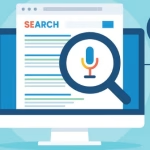The General Data Protection Regulation (GDPR) and marketing are distinct concepts, but they intersect in significant ways, particularly regarding how companies collect, process, and use personal data for marketing purposes. Here’s a breakdown of the key differences between GDPR and marketing:
GDPR

GDPR is a comprehensive data protection regulation enacted by the European Union (EU) to safeguard the personal data of individuals within the EU and European Economic Area (EEA). Its primary objective is to give individuals greater control over their personal data and to establish a uniform set of rules for data protection across the EU/EEA member states.
Focus: GDPR focuses on data protection and privacy rights, emphasizing principles such as consent, transparency, data minimization, security, accountability, and individual rights.
Scope: GDPR applies to the processing of personal data by businesses and organizations, regardless of whether they are located within the EU/EEA. It also applies to businesses outside the EU/EEA that offer goods or services to individuals in the EU/EEA or monitor their behavior.
Regulatory Authority: GDPR is enforced by data protection authorities within each EU/EEA member state, with the European Data Protection Board (EDPB) providing guidance and ensuring consistent application of the regulation.
Marketing
Marketing encompasses the strategies, activities, and processes that businesses undertake to promote their products or services, attract customers, and generate sales. It involves various techniques, channels, and mediums to communicate with target audiences and persuade them to engage with a brand or make a purchase.
Focus: Marketing focuses on creating and delivering value to customers, building brand awareness, generating leads, driving sales, and fostering customer relationships.
Strategies and Tactics: Marketing encompasses a wide range of strategies and tactics, including advertising, content marketing, email marketing, social media marketing, search engine optimization (SEO), influencer marketing, and more.
Goals: Marketing aims to achieve specific business objectives, such as increasing brand visibility, acquiring new customers, retaining existing customers, driving revenue growth, and enhancing customer loyalty.
While GDPR and marketing are distinct concepts, they are interconnected in the context of data-driven marketing practices. GDPR regulates how personal data, including data collected for marketing purposes, is handled by businesses and organizations. Therefore, marketers must ensure that their marketing activities comply with GDPR requirements, particularly concerning consent, transparency, data security, and individual rights. Failure to do so can result in significant legal and financial consequences for businesses.
Discover more from Wits Technologies Ltd
Subscribe to get the latest posts sent to your email.





